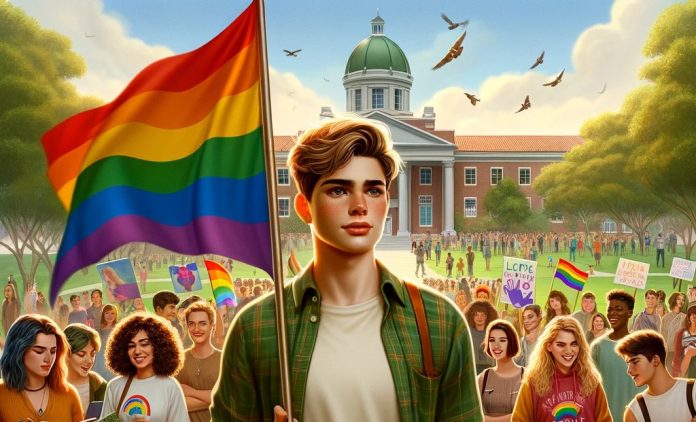Recent surveys and studies have unveiled a striking trend in the demographics of Generation Z (Gen Z) in the United States. These findings indicate that a significant portion of Gen Z, individuals born between 1997 and 2012, are more likely to identify as LGBTQ+ than as Republican. This marks a notable shift in the social and political landscape of the country.
About 28% of Gen Z adults identify as LGBTQ+, a figure that is considerably higher compared to older generations such as Millennials (16%), Generation X (7%), Baby Boomers (4%), and the Silent Generation (4%). This trend highlights the growing diversity and acceptance of different sexual orientations and gender identities among the younger generation. In comparison, only 21% of Gen Z Americans align themselves with the Republican Party, a decrease from the 32% of Baby Boomers who do. This decline in Republican affiliation among the younger generation is accompanied by a decrease in religious affiliation, particularly among white Christians.
Gen Z’s political inclinations lean more towards the left, with 43% identifying as liberal. About 36% identify as Democrats, while a lower percentage, 21%, say they’re Republicans. Additionally, there is a significant portion of Gen Z adults, around 30%, who identify as independents. This demographic is also less likely to identify as white Christians (27%) compared to Baby Boomers (54%), and more likely to be religiously unaffiliated (33%) than every generation except Millennials.
Related: How to Find Your Gay Community Spaces
These shifts in identity and political affiliation among Gen Z are not just numbers; they represent a significant transformation in American society’s understanding and acceptance of diverse identities. The implications are far-reaching, especially considering the upcoming U.S. general elections. With an estimated 40.8 million Gen Z members eligible to vote in 2024, their preferences and inclinations could shape the political landscape in unprecedented ways. The change suggests a future where more progressive and inclusive policies could gain traction, challenging traditional conservative ethos.
This demographic shift among Gen Z is not only a reflection of changing social norms but also an indicator of the evolving political landscape in the United States. As this generation grows in influence and voting power, their values and preferences are likely to have a substantial impact on the future direction of American society and politics.
Related: Young Royals S3 Teaser: Wilhelm & Simon’s Final Journey



